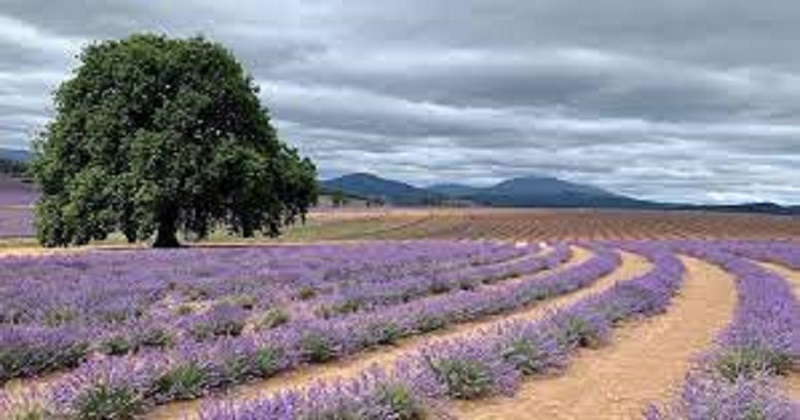
If diplomatic relations between the two countries do not improve, tourism experts predict Chinese travelers will not return in the same numbers as they did before the pandemic. According to Sam Huang, of Edith Cowan University in Perth, the Chinese government controls most of the country’s outbound tourism, which is bad news for Australia. He told The Business, ‘I believe the current state of the Australia-China relationship would pose a significant barrier for our future tourism recovery’. Huang’s warning comes as tourism operators prepare for the reopening of international borders in some of Australia’s most popular tourist destinations.
The purple flowers on the famous Bridestowe Estate lavender farm in north-east Tasmania won’t bloom until summer, but owner Robert Ravens has already begun sowing the seeds for a future beyond the Chinese market. Mr. Ravens said that he believes that the next steps for tourism from an economic perspective are Japan, followed by the Indian subcontinent, and thinking publicly about the impact of Indonesia and Korea on tourism. He said, ‘We get many Chinese visitors into Tasmania, but they shouldn’t be the focus of all our attention or conversations’. His stance may surprise some considering Bridestowe’s success in the Chinese market, but Mr. Ravens said Bridestowe never targeted a particular market.

China’s President Xi Jinping visited the estate in 2014 and was presented with a lavender-filled purple toy bear. Mr. Ravens recalled that the bear then became a symbol of the connection between Tasmania and China. It increased the demand for ‘Bobbie the bear’ from both tourists visiting Tasmania and online buyers from China. According to Tourism Australia, China was Australia’s largest inbound tourist market in 2019, both in terms of arrivals and spending. There were 758,551 holiday arrivals from China in the year 2019, out of 1.4 million short-term visitors. In that year, Chinese tourists spent $3.3 billion in Australia. The Pandemic affected Jacqui Laning’s business immediately along the Tasmanian east coast, in the town of Bicheno, in early 2020.
Each year, during the Golden Week holiday in January and February, many Chinese tourists visit her nature park, home to Tasmanian devils and kangaroos. Due to diplomatic tension last year, Chinese authorities upgraded their travel advice, warning their citizens against visiting Australia. As a precaution, Chinese citizens should be aware of local security risks and observe caution about traveling to Australia in the near future, according to the advice. The message was aimed at Chinese students considering enrolling in Australian universities.
Tourism could be seriously affected by these kinds of government statements, according to Professor Huang. According to him, there are some government directives that will impact Chinese tourists. Huang said that addressing the issue would require a top-down approach from the government, as individual operators could not greatly influence the situation. Although the reopening of international borders is unlikely in the near term, operators have been planning for a new tourism landscape when overseas visitors return.
Earlier this month, Robert Ravens, owner of Tasmania’s lavender farm, met the Japanese ambassador in Hobart. Ravens said the meeting was a ‘startup’ for the state’s relationship with Japan. Mr. Ravens noted an increase in visitors from India and Sri Lanka moving to Australia to visit Tasmania. Tourism Australia found for the month of May that sentiment about international travel, and Australia as a destination, was especially positive among Europeans, Canadians, Koreans and New Zealanders.
In other markets, including China, India and Japan, travelers felt less confident. Seventy-five percent of Indian survey respondents indicated Australia was on their list of places to visit once the crisis was over, but most were wary of traveling internationally for now. There was a slight increase in booking intentions among Japanese people in May, but with hesitation, 55% saying they will be cautious for a while and 31% not sure if they will travel internationally in the future.
Read more: European Union seeks to rival China’s ‘Belt and Road’
Despite this, half of the respondents said Australia was their top destination once the crisis was over. Several domestic travelers are enjoying oysters in Hobart. Justin Goc, the manager of Barilla Bay Oyster Farm, used to welcome busloads of tourists. The fresh seafood, including some particular delicacies popular with Chinese visitors, has been a major draw.

Post Your Comments